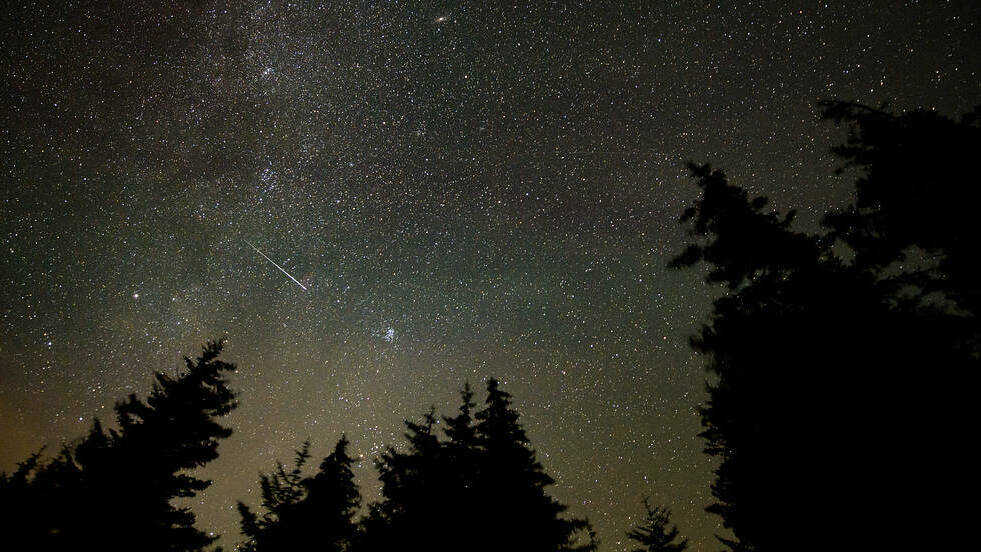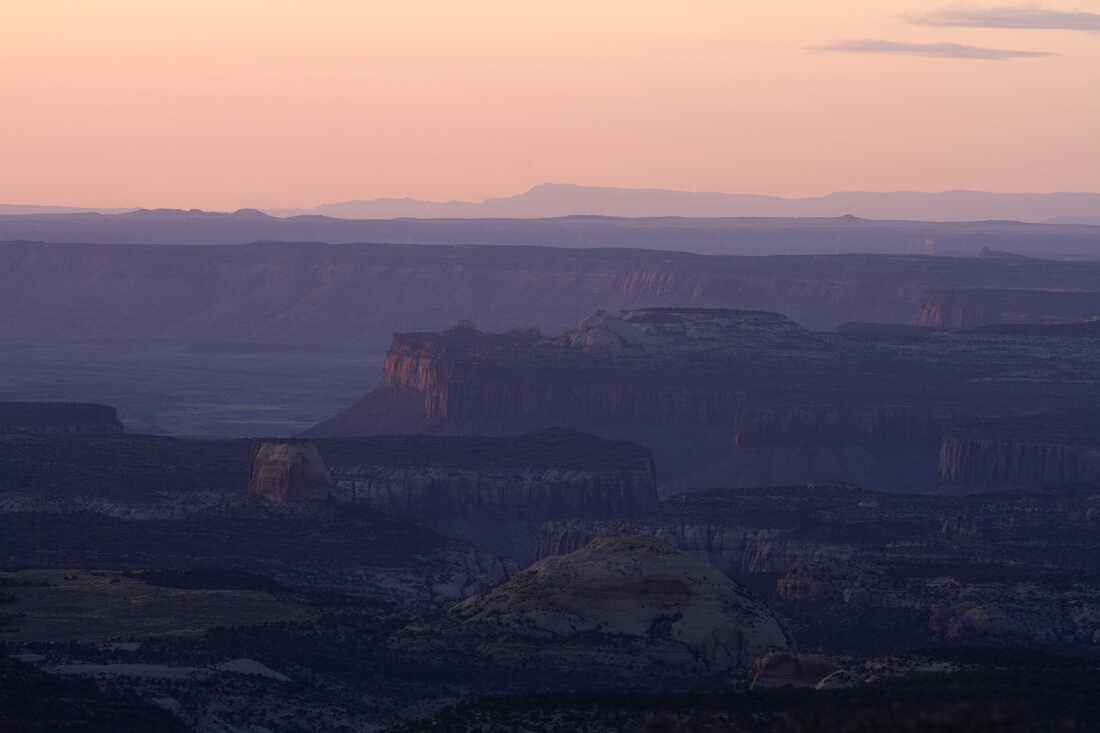The Perseid meteor shower peaks this weekend. Here's how to watch
By Nell Greenfieldboyce
In this 30 second exposure, a meteor streaks across the sky during the annual Perseid meteor shower, Wednesday, Aug. 11, 2021, in Spruce Knob, West Virginia. NASA/Bill Ingalls hide caption
toggle caption NASA/Bill IngallsIn this 30 second exposure, a meteor streaks across the sky during the annual Perseid meteor shower, Wednesday, Aug. 11, 2021, in Spruce Knob, West Virginia.
NASA/Bill IngallsGet ready for some shooting stars — this weekend is the peak of the annual Perseid meteor shower, the beloved astronomical event that sends bright streaks of light streaming across the night sky.
This year's show should be a good one, "mainly because the moon isn't going to interfere," says , director of public observing with the Adler Planetarium in Chicago. "We can have different reasons why a meteor shower may be better one year versus the next, and a lot of times it's the phase of the moon."
Because the waning crescent moon will be just a little sliver that rises late, the sky will be dark, creating the ideal backdrop for the meteor shower's celestial fireworks.
While the Perseid shower has technically been underway since mid-July, the greatest number of meteors should be visible in the early, pre-dawn hours of Sunday, August 13.
"If you're out in a dark sky, without a moon, you can probably see at least 50 to 60 per hour, during the last hour before dawn," says , who works with the American Meteor Society.
When it first gets dark on the night of Saturday, August 12, the source of the meteors will lie close to the northern horizon, he explains, "so a lot of the activity is going to be blocked by the horizon. As the night progresses, the source of meteors will rise higher in the sky. It'll be highest just before dawn, and that's when you'll see the most activity."
Those fireballs are a big part of the draw for , an astronomer at New York City's Hayden Planetarium who makes a point to watch the Perseids each year.
"One can come that will shake you to your core," says Faherty. "It, like, scares you."
Sometimes people go outside, peer up at the sky briefly, and come away disappointed, she says. Part of the problem could be that the eyes haven't fully adjusted to the dark, but it's also true that the meteors don't happen at a consistent pace. For a while, nothing might happen, and then suddenly a slew will shoot across the sky in rapid succession.
"You cannot just be out there for 10 minutes. You have to commit to being there," says Faherty. "Really, 45 minutes to an hour is my recommended minimum. Get a glass of wine — or a bottle. Sit out there for a while. Give the sky a chance to entertain you."



